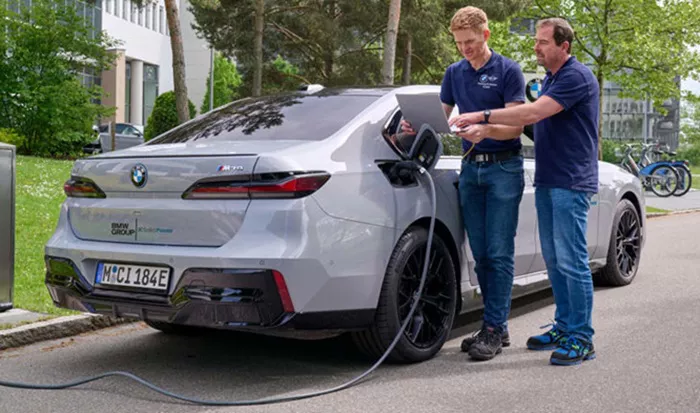BMW is currently testing a new electric vehicle prototype equipped with solid-state batteries on public roads around Munich. This marks one of the first times a BMW EV has been fitted with this cutting-edge battery technology.
The test vehicle is a BMW i7 with a large solid-state battery pack. Unlike most current EV batteries that use liquid electrolytes, this car uses prismatic cells with a solid sulfide-based electrolyte. These cells share the same shape as BMW’s existing Gen5 batteries but replace the liquid with a solid material.
BMW emphasizes that these batteries are fully solid-state, not semi-solid, making this a rare real-world trial of a technology many automakers are still researching. Despite this, BMW is not rushing to put solid-state batteries into production.
Martin Schuster, BMW’s Vice President of Battery Cell and Cell Module, said that solid-state batteries are unlikely to be needed in their production EVs until around the mid-2030s. This is because BMW’s upcoming Gen6 batteries already bring major improvements in charging speed, range, carbon footprint, and cost.
The Gen6 batteries, which will debut with BMW’s Neue Klasse electric vehicles starting this year, use cylindrical cells rather than the prismatic form factor seen in the solid-state prototype. BMW expects one more battery generation after Gen6 before it may fully adopt solid-state technology.
BMW’s partnership with battery company Solid Power dates back to 2016 and was strengthened in 2022. Still, BMW remains cautious about the costs and production challenges of solid-state batteries. Unless there is a major breakthrough making these batteries cheaper and easier to manufacture, BMW plans to continue improving existing battery technologies first.


